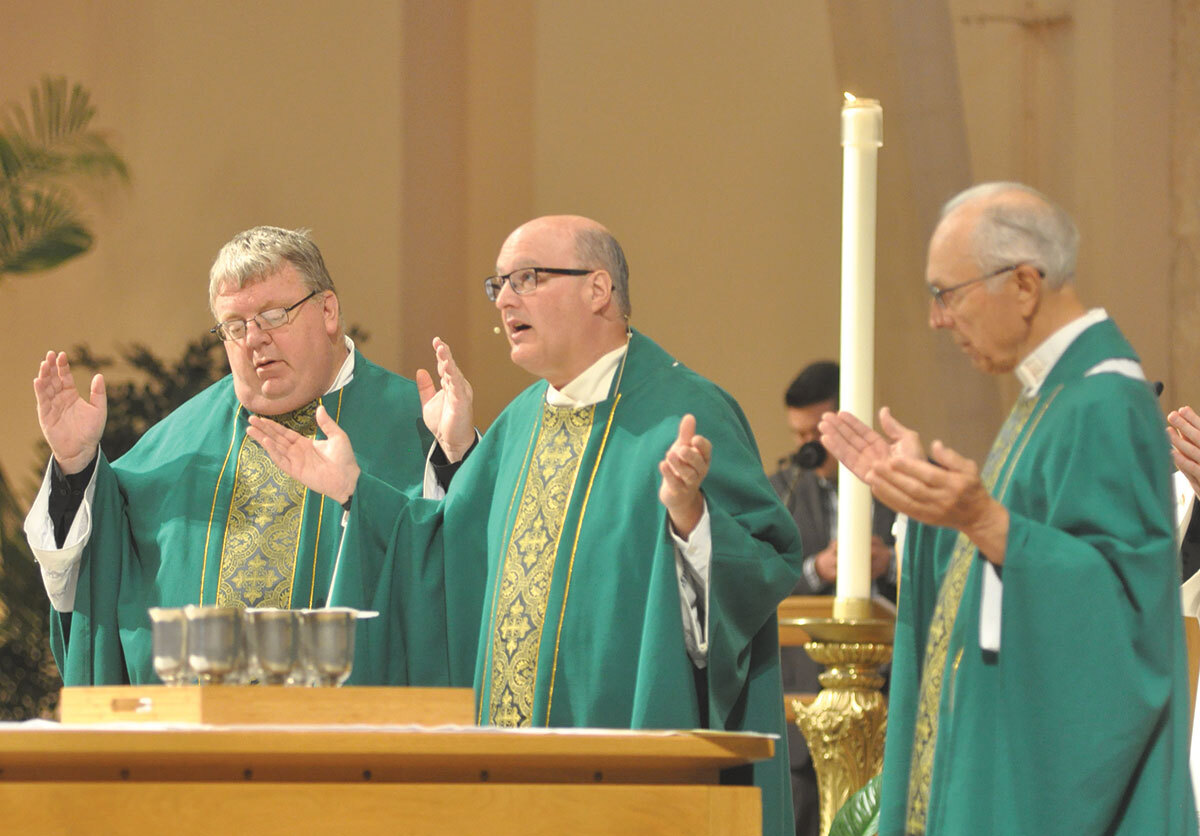
What exactly is the College of Consultors? The College of Consultors is a group of priests chosen to assist a bishop in the administration of a diocese. They provide advice on important matters, especially when the diocese is without a bishop. This group ensures continuity and stability within the church's governance. Members are selected for their experience and wisdom, making them trusted advisors. Their role is crucial during transitions, such as when a bishop retires or passes away. Understanding the College of Consultors helps appreciate the inner workings of church leadership and the importance of collective decision-making in maintaining church operations.
What is the College of Consultors?
The College of Consultors is a group of priests in the Catholic Church who assist the bishop in the governance of the diocese. They play a crucial role in decision-making, especially when the diocese is without a bishop. Here are some intriguing facts about this important ecclesiastical body.
-
The College of Consultors is composed of priests chosen by the bishop from among the members of the presbyteral council.
-
The number of consultors in the college ranges from six to twelve, depending on the size of the diocese.
-
Consultors are appointed for a five-year term, but they can be reappointed for additional terms.
-
One of their key responsibilities is to elect a diocesan administrator when the diocese becomes vacant.
-
The diocesan administrator elected by the College of Consultors must be a priest who is at least 35 years old.
Responsibilities and Duties
The College of Consultors has several important duties that ensure the smooth functioning of the diocese, especially during times of transition.
-
They provide advice to the bishop on significant matters, including financial decisions and pastoral initiatives.
-
The college must be consulted before the bishop makes decisions about the sale of church property.
-
They also play a role in approving the annual budget of the diocese.
-
In the absence of a bishop, the College of Consultors ensures that the diocese continues to operate effectively.
-
They are responsible for maintaining the stability and continuity of diocesan governance.
Historical Background
Understanding the historical context of the College of Consultors helps to appreciate its current role and significance.
-
The concept of consultors dates back to the early centuries of the Church when bishops sought advice from senior clergy.
-
The formal establishment of the College of Consultors occurred during the reforms of the Second Vatican Council.
-
These reforms aimed to promote greater collaboration and shared responsibility within the Church.
-
The College of Consultors reflects the Church's commitment to collegiality and shared governance.
-
Over time, the role of consultors has evolved to meet the changing needs of the Church.
Election of the Diocesan Administrator
One of the most critical functions of the College of Consultors is the election of a diocesan administrator when the diocese is without a bishop.
-
The election must take place within eight days of the diocese becoming vacant.
-
The diocesan administrator has the same powers as a bishop, except for those matters that are reserved to the bishop alone.
-
The administrator serves until a new bishop is appointed by the Pope.
-
The College of Consultors ensures that the election process is conducted fairly and transparently.
-
This process helps maintain continuity and stability within the diocese during periods of transition.
Final Thoughts on the College of Consultors
The College of Consultors plays a vital role in the governance of the Catholic Church. These advisors assist bishops in making crucial decisions, ensuring the church's smooth operation. Comprised of experienced priests, the group provides wisdom and guidance on various matters, from financial issues to pastoral care. Their work often goes unnoticed by the general public, yet their influence is significant. Understanding their function helps appreciate the intricate structure of church leadership. The next time you hear about a bishop's decision, remember the consultors' input behind the scenes. Their dedication and expertise contribute to the church's stability and growth. So, next time you think about church governance, give a nod to these unsung heroes. They truly make a difference.
Was this page helpful?
Our commitment to delivering trustworthy and engaging content is at the heart of what we do. Each fact on our site is contributed by real users like you, bringing a wealth of diverse insights and information. To ensure the highest standards of accuracy and reliability, our dedicated editors meticulously review each submission. This process guarantees that the facts we share are not only fascinating but also credible. Trust in our commitment to quality and authenticity as you explore and learn with us.


